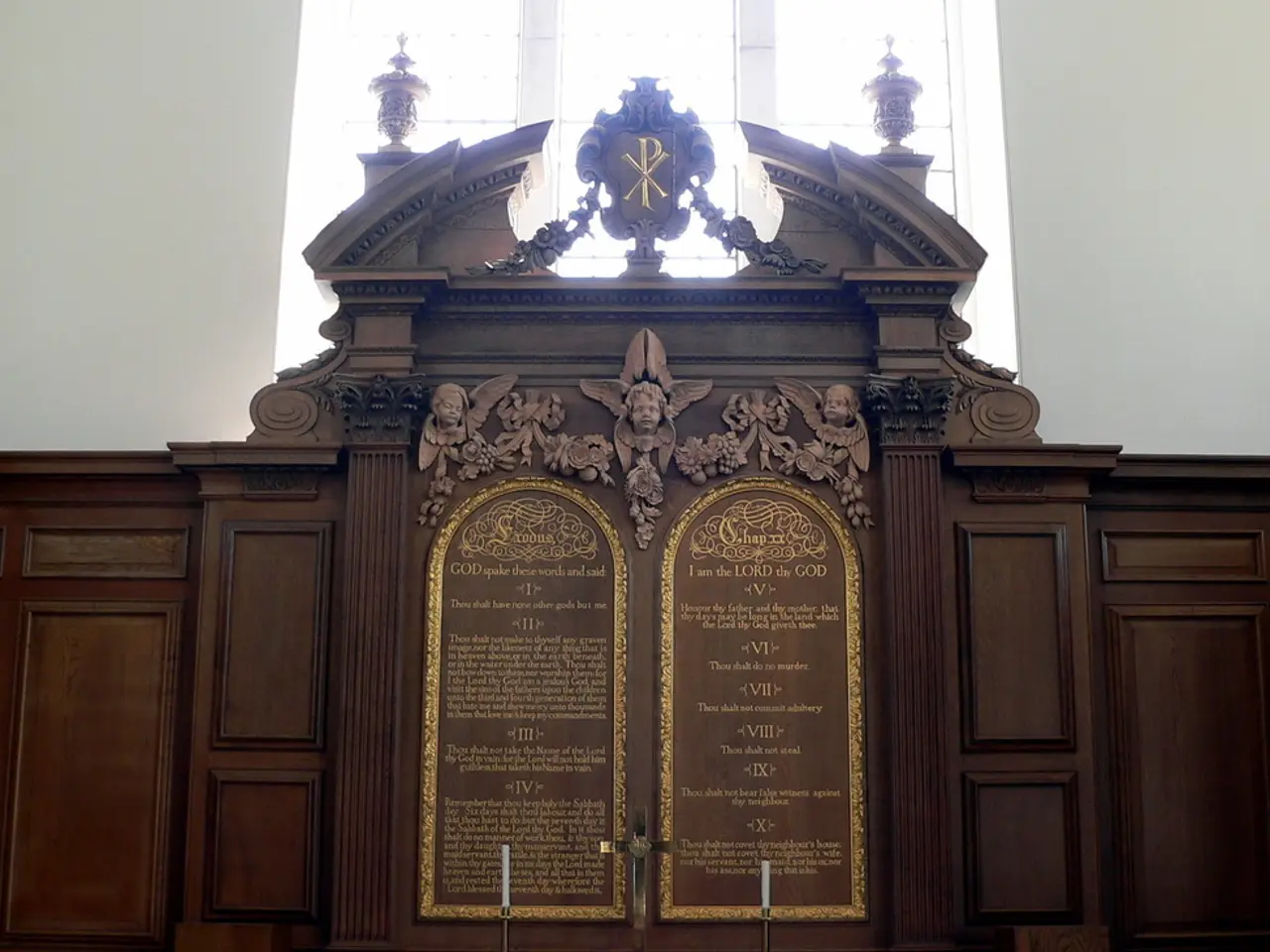Administration of Trump initiates extensive evaluation of eight Smithsonian museums
The Smithsonian Institution is currently under review by the Trump administration, prompting concerns among museum professionals about potential political interference and the integrity of research. The review aims to ensure the museums align with the president's directive to celebrate American exceptionalism.
In a cautious response, the Smithsonian has primarily declined public comment on the matter. Despite White House lawyers being tasked to review the museums, the institution officially denies government pressure to alter exhibits. However, certain materials, such as a placard referencing Trump's impeachments, were temporarily removed and later reinstated.
Museum professionals and sector bodies have expressed alarm at the potential for political interference and censorship. They warn of a chilling effect across the entire museum community due to the administration's direction to remove "divisive or partisan narratives" and promote a version of American history focused on "brightness," "success," and "exceptionism."
The White House review demands extensive access to internal documents, exhibition plans, and digital files to assess and adjust content for alignment with the President's directive. The review letter states that the museums should reflect "unity, progress, and enduring values that define the American story."
Lisa Strong, a professor of art history and director of the art and museum studies MA program at Georgetown University, expressed disappointment and concern upon reading the letter. She questions whether the purpose of museums, especially institutions like the Smithsonian, should only be to celebrate the country and patriotism.
Museum professionals, however, are experts in their field and have extensive knowledge of their collection. They interpret academic research and relate it to the collection objects, ensuring rigorous research and accurate factual presentation of history.
Survey after survey has shown that museums are one of the most trusted institutions, second only to people's friends and relatives. Museums maintain public trust through independence of thought. Interference in the content of museum exhibitions threatens this integrity and the independence of research conducted by museum professionals.
Strong believes any interference in the content of museum exhibitions threatens the integrity of the research conducted by museum professionals. She emphasizes that museum exhibitions should be based on the collection and not based on government interference.
The initiative also aims to restore confidence in cultural institutions. Museum professionals feel very strongly their responsibility to present accurate information to the public, and any interference could potentially undermine this trust.
[1] The Washington Post
[2] The New York Times
[3] The Guardian
- The government's policy and legislation regarding the Smithsonian Institution's education and self-development, including online education, has sparked a wave of general news reports and debates about potential political interference in museums, raising concerns about the integrity of research and the chilling effect on the entire museum community.
- Amid the controversy, experts in the field, such as Lisa Strong from Georgetown University, are advocating for the separation of politics and legislation from learning, arguing that museum exhibitions should be based on academic research, collection objects, and factual presentation of history, not government interference.
- As the review continues, policy and legislation watchdogs, online news sources like The Washington Post, The New York Times, and The Guardian, will likely provide updates on the impact of this policy on the independence of museum professionals and the trust of the public in cultural institutions, as well as the potential long-term effects on education and self-development.




